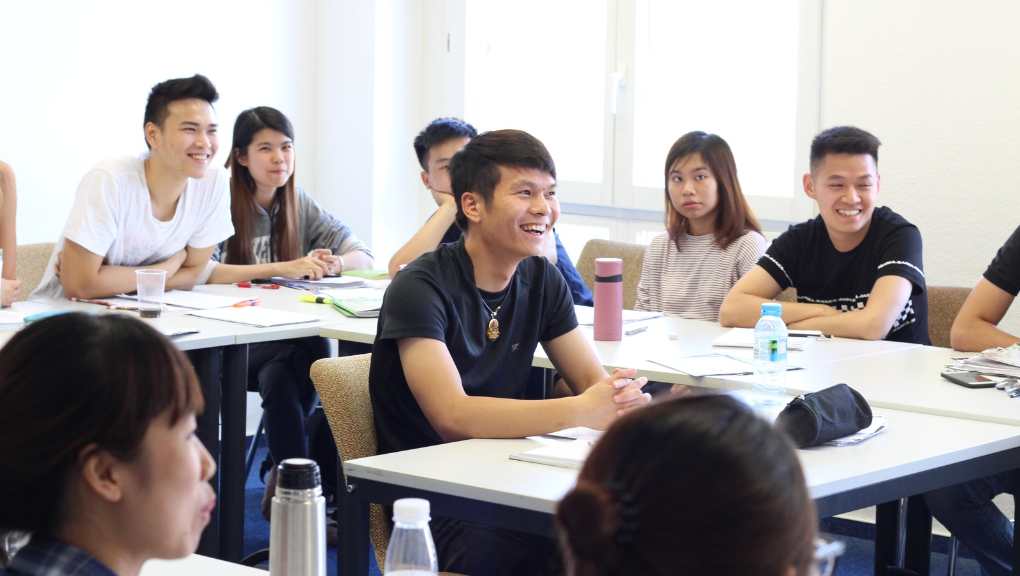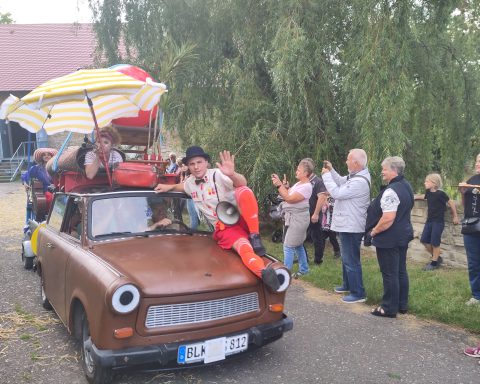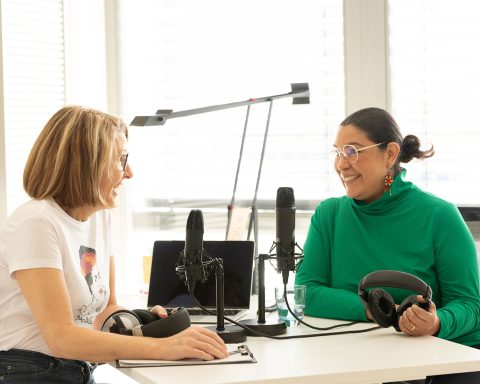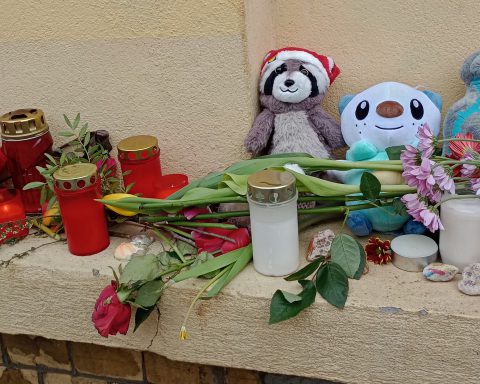On a sweltering late summer afternoon, a group of about 20 Vietnamese students wrapped up their intensive German course at inlingua Leipzig. They diligently plowed on with the difficult language, through the sweat and the lure of the nearby lakes, when many other students got to enjoy a vacation.
The recruiter bringing in the young southeast Asians – to train and work in the German healthcare industry – had tasked inlingua with helping get the students up to a B2 level. Their German course lasted about five months, taking place a grueling five times a week, for a total of six hours each day.
They’ve come at a time when demand for foreign workers is increasing locally. Germany’s population is aging faster than it’s being replaced, at the same time as the economy is booming.
The German government is encouraging immigration in priority sectors and easing some rules to try to address labor shortages. It will take a while before the young Vietnamese are able to enter the labor market, however; the next step is a three-year training program (Ausbildung), to earn their qualification.
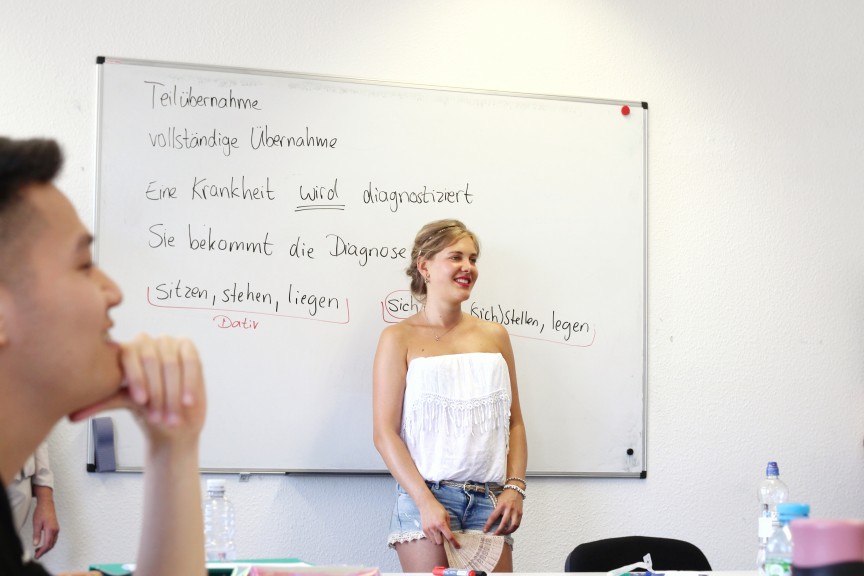
The spirited millennials are keeping their eye on the goal: to work as geriatric nurses while building a new life in Germany.
They already had some German knowledge, but improved it a lot at inlingua. The young Vietnamese made a very good impression on their teachers at the Leipzig school, with some saying they’d never had such motivated pupils before.
“They’re very sweet and dedicated, and are learning to speak fluently,” teacher Emelie Wey said during one of their classes. They are also optimistic; when asked what their favorite saying was, many of the students answered, in German: “Am Ende wird alles gut. Und wenn es nicht gut ist, ist es noch nicht das Ende” (attributed to Oscar Wilde).
One of the students, 24-year-old Tran Ngoc Long, moved to Leipzig about half a year ago from Nam Dinh, a city nearly four times as populated. He says he likes the fact Leipzig “is not only a quiet city,” but also has good public transport and “many attractions” like the zoo, Grassi Museum and Völki. He’s committed to using German everyday with native speakers, since he “must learn many new words” in this “very time-consuming foreign language.”
Another student at inlingua – Nhi Tran, 29 – hails from Ho Chi Mihn City, Vietnam’s largest metropolis (population 12 million). She says she prefers the transport system, weather and number of trees in Leipzig compared to her hometown. But she does stay connected with home, by regularly going to church and hanging out with the local Vietnamese Catholic community.
Some of the Vietnamese students said they already had relatives living in Germany – for decades, in fact.
From the 1950s-80s, it had been common practice for the GDR to bring in students from fellow socialist Vietnam as foreign aid, and to fill gaps in the labor market. This practice has carried over into a reunited Germany, where prosperity and longevity have brought labor shortages of their own.
One in five people in Germany is at least 65 years old, up by more than 36 percent in 20 years. At the same time, the proportion of people 40 or younger decreased from about 51 percent in 1997 to 43 percent in 2017.
The hundreds of Leipzig babies we see out in their prams will only reach working age in a couple decades. In the meantime, a lot more houses and venues need to get built due to economic growth here, and nursing homes need a lot more staff to keep up with the immediate influx.
Over recent years, the German and Vietnamese governments have had an agreement facilitating and subsidizing the migration of potential nurses to the Western European country, due to shortages in the sector. According to the German Corporation for International Cooperation (GIZ), “Germany is facing an alarming shortage of qualified nurses in the geriatric care sector. Experts estimate that, due to demographic change, the number of people requiring care in Germany will increase from… about 2.3 million to approximately 3.4 million in 2030. (…) Without fundamental changes to the recruitment policies, some 500,000 nursing positions will go unfilled.”
Similar patterns in other European countries have led Germany to look outside the region – towards “emerging markets and developing countries” – for labor force.
Vietnam, for one, “has a very young population and falls far short of employing its entire potential workforce,” says the GIZ. The German agency had started bringing over some 100 Vietnamese at a time in 2013, in a “new approach [that] uses existing labor relations with Vietnamese administrations, such as the Vietnamese Ministry of Labor, Invalids and Social Affairs (MoLISA), and takes local trends into account. Furthermore, it creates attractive openings for investment and cooperation for German businesses.”
Luckily for Germany, the young students at inlingua seemed quite motivated about their job prospects here.
Some had already studied nursing back in Vietnam, and wanted to continue in the field. Others wanted to build up their communication skills through a meaningful job. Yet others were driven by observing the difficulties their own grandparents or parents faced amid ailments and the aging process, and wanted to be better prepared to take care of them in the future.
Ly Truong An, a 27-year-old from Soc Trang, says he sees geriatric nursing, specifically, as his vocation:
“Being caretaker for the elderly is my favorite profession. This way, I can give back to the senior citizens.”
He adds that the intensive course at inlingua gave him a good foundation for his future studies, and that he appreciated the German teachers’ enthusiasm. In general, the Vietnamese students said they’d found people in Leipzig friendly, and were looking forward to spending at least the next few years in the area.
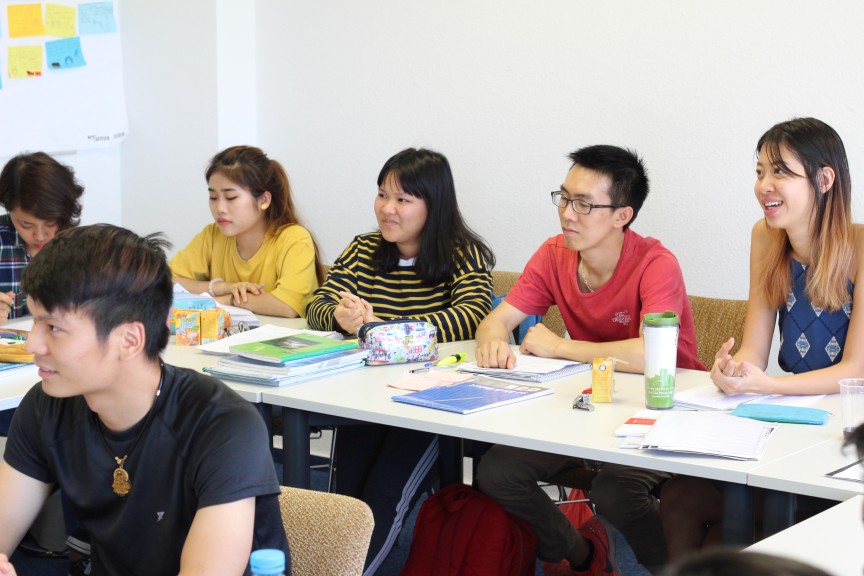
Get in touch with inlingua if you want to improve your German to interact in local life, or are a company wanting to get language training for a group or individual employees. Also, inlingua is always looking for language teachers, according to the languages in demand.
Cover shot: Young Vietnamese students finishing their five-month course at inlingua, August 2018. (Photo by Sarah Alai / LeipGlo)

